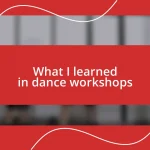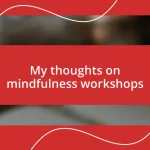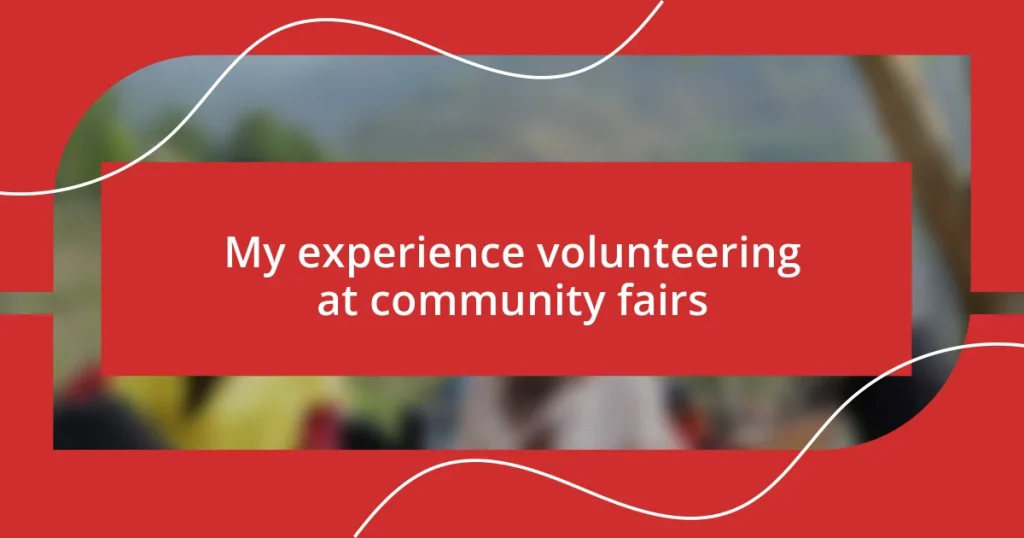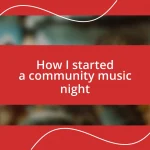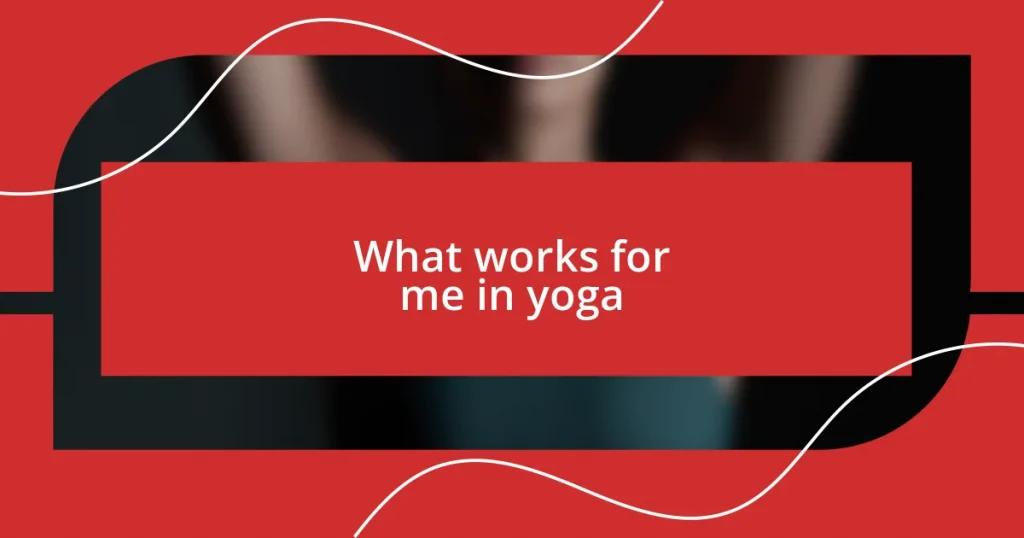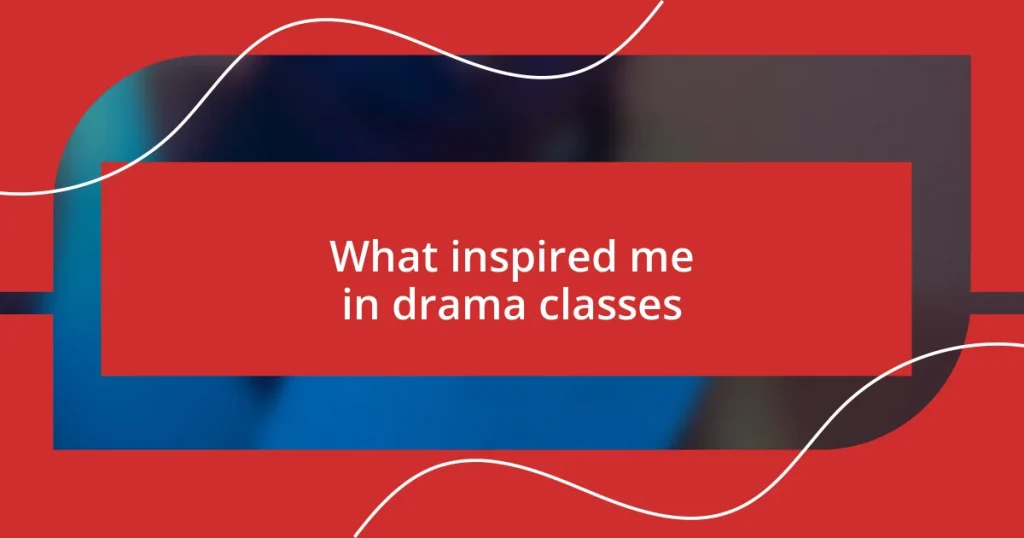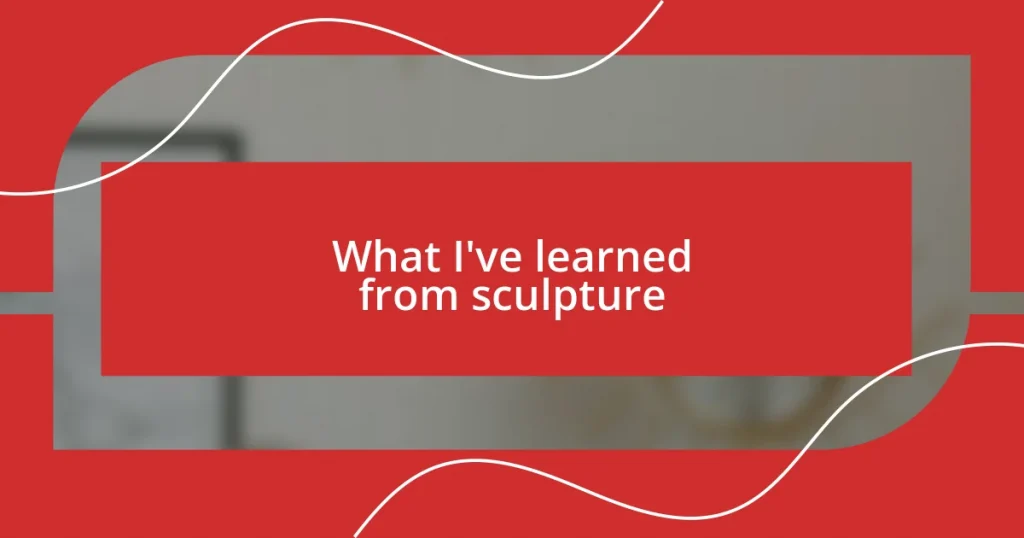Key takeaways:
- Volunteering at community fairs fosters personal growth and enhances communication skills while creating a sense of belonging.
- Challenges faced during events, like last-minute changes or unresponsive groups, provide valuable lessons in adaptability and teamwork.
- Meaningful interactions with community members can have lasting impacts, reinforcing the importance of connection and support.
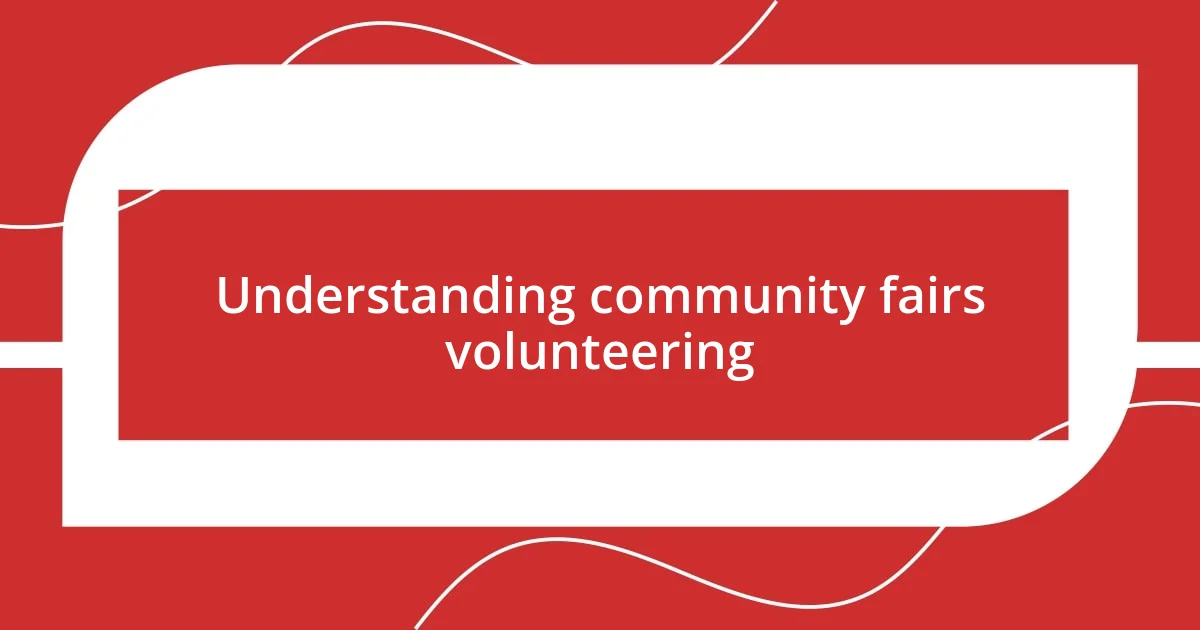
Understanding community fairs volunteering
Volunteering at community fairs is more than just lending a helping hand; it’s about immersing yourself in the vibrant tapestry of local culture. I remember my first fair; the energy was infectious, and the smiles exchanged felt like small victories in themselves. Isn’t it amazing how a single event can bring together so many different people under one common purpose?
Every role you take on, whether it’s setting up booths or assisting with activities, plays a crucial part in creating a warm atmosphere. I particularly enjoyed interacting with families, watching children’s eyes light up at the sight of colorful crafts and games. Have you ever noticed how small gestures, like giving a high-five to a shy child, can foster a real sense of belonging and joy?
Moreover, the skills I gained were invaluable. For instance, I learned to manage time effectively and improve my communication skills while working alongside seasoned volunteers. Reflecting on those experiences, don’t you think that volunteering doesn’t just benefit the community but also shapes us as individuals? Each moment spent at the fair taught me something new, transforming a simple act of service into a powerful journey of personal growth.
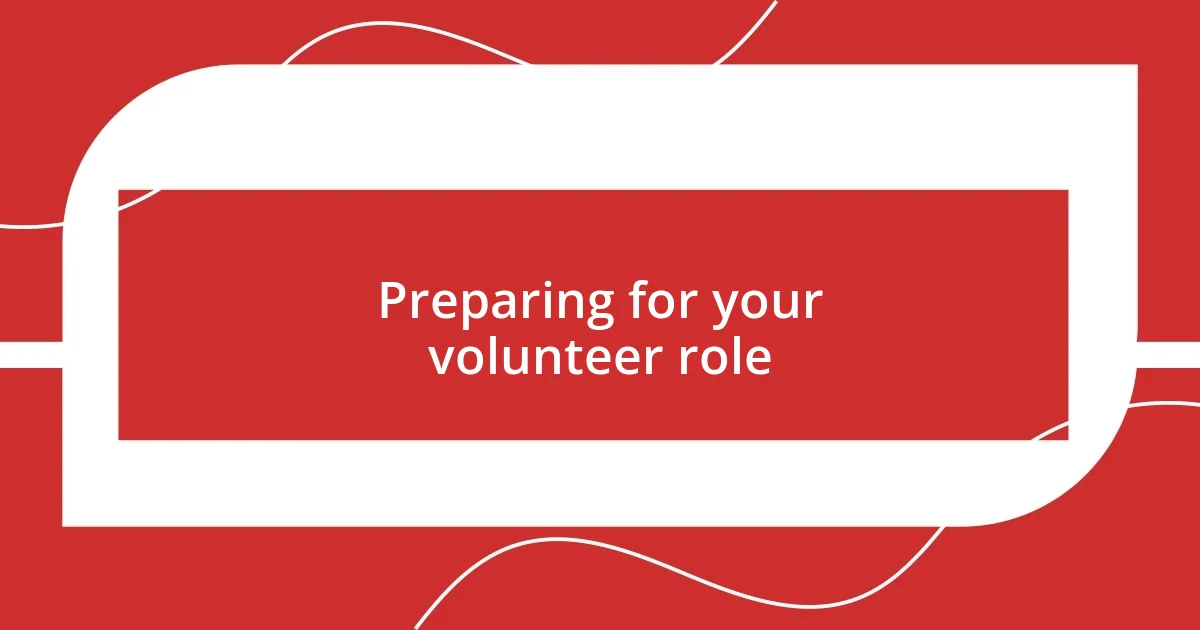
Preparing for your volunteer role
Before diving into the exciting world of community fairs, it’s essential to prepare for your role thoughtfully. I remember feeling a mix of excitement and nerves before my first event, unsure of what to expect. Gathering information about the fair’s layout and schedule helped me feel more confident. Knowing the basics ahead of time can boost your confidence and ensure you’re ready to make a meaningful impact.
Here are some key aspects to consider while preparing for your volunteer role:
- Understand your responsibilities: Take time to read through the role description. Knowing exactly what’s expected can alleviate anxiety.
- Reach out to organizers: Connecting with event coordinators can provide valuable insights. They can answer questions you may have and help set expectations.
- Dress appropriately: Comfortable clothing and shoes are a must! You don’t want to be distracted by discomfort while trying to enjoy the day.
- Bring essentials: Snacks, water, and sun protection are practical items to have. I learned the hard way that staying hydrated is key to maintaining energy levels.
- Prepare mentally: A positive mindset is crucial. Remind yourself why you’re volunteering and the difference you can make in the community.
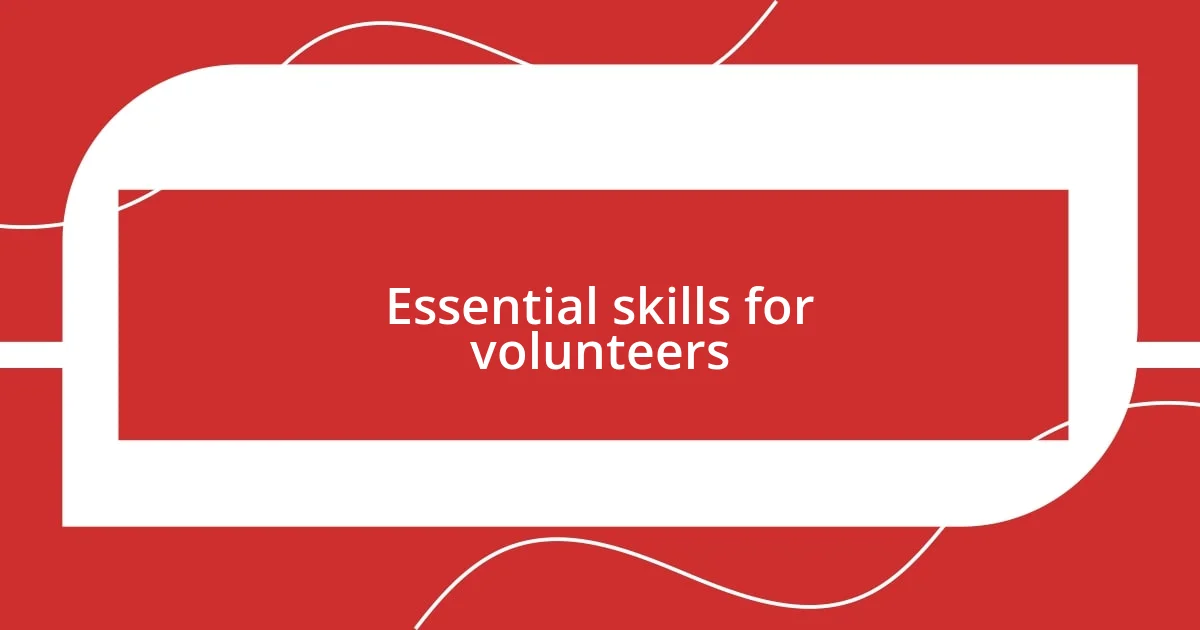
Essential skills for volunteers
Essential skills for volunteers are essential to enhance both the volunteering experience and the overall event. One skill that often goes unnoticed is adaptability. I distinctly remember a day at a community fair when a sudden downpour threatened to cancel outdoor activities. The ability to shift plans quickly, reorganize, and keep the spirits high among fellow volunteers was crucial. In moments like these, staying flexible and ready to tackle the unexpected can make all the difference.
Engaging with diverse groups is another key skill. Interacting with attendees from various backgrounds allows for richer connections. I fondly recall helping a group of newcomers navigate the fair; it felt rewarding to bridge gaps and welcome them into the community. Such interactions teach us empathy and understanding—traits that resonate beyond the fairgrounds.
Lastly, effective communication is vital. I remember one instance where I was assigned to a booth and had to explain a craft to a cluster of eager children. The challenge was not only to convey instructions clearly but also to capture their attention. Creating a dialogue rather than a monologue transformed the experience. It’s a reminder that our ability to communicate can determine the success of our interactions and the fulfillment of our roles.
| Skill | Importance |
|---|---|
| Adaptability | Helps volunteers respond effectively to unexpected changes. |
| Engagement | Enables connections with diverse community members, fostering inclusivity. |
| Effective Communication | Critical for ensuring clarity and building rapport with attendees. |
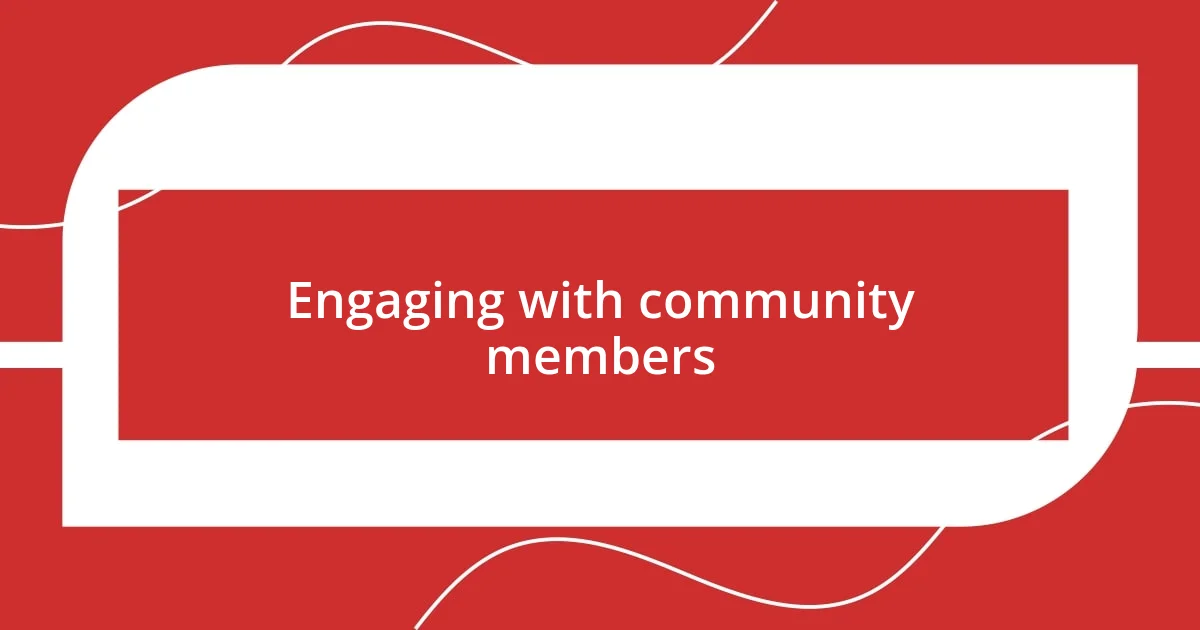
Engaging with community members
Engaging with community members at fairs can be an eye-opening experience. During my first event, I stumbled upon a friendly grandmother who struck up a conversation while her grandkids played nearby. As we chatted, I felt an unexpected connection; her stories about the neighborhood’s history ignited my passion for community engagement. It made me realize just how vital these interactions are for building relationships and understanding the needs of those around us.
I often found myself moving between different booths, each encounter revealing something new. I vividly remember helping a young couple discover local resources they hadn’t even known existed. Their faces lit up with enthusiasm, reminding me that sometimes, it only takes a moment of kindness to make someone feel valued. Isn’t it incredible how an open dialogue can turn a casual interaction into a meaningful experience?
Being present and approachable is key to genuine engagement. I’ve noticed that a simple smile or a welcoming gesture can break the ice, making folks feel more comfortable sharing their thoughts and ideas. Imagine the impact we could have if everyone made an effort to connect with others, fostering a sense of belonging in our communities. Each conversation holds potential—both for us as volunteers and for those we engage with.
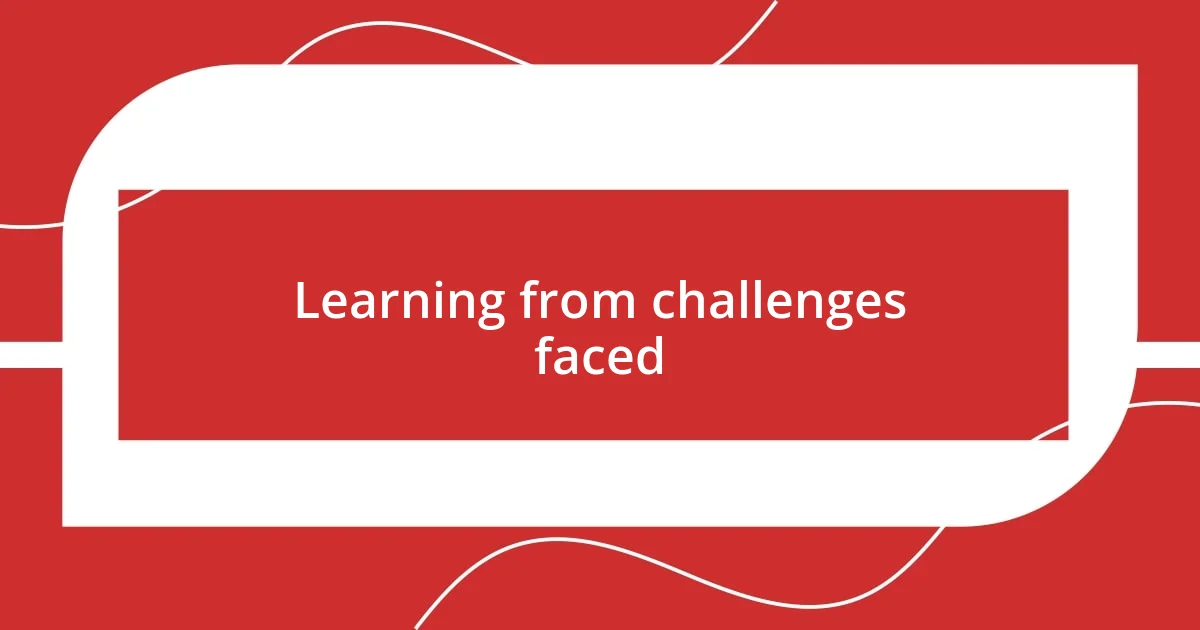
Learning from challenges faced
When volunteering at community fairs, I’ve faced my fair share of hurdles that taught me invaluable lessons. One particularly challenging moment was when a vendor didn’t show up at the last minute. I had to think on my feet and quickly find alternatives to ensure our booth remained inviting and engaging. This experience wasn’t just about problem-solving; it deepened my appreciation for teamwork. Seeing other volunteers rally together, pooling ideas and resources, emphasized how collaboration can turn a potentially chaotic situation into a successful outcome.
Another significant challenge arose when we experimented with a new activity designed to draw in families; however, it initially flopped. I felt disappointed, but instead of viewing it as a defeat, I decided to gather feedback from attendees. Their insights were invaluable, helping us refine the activity into something truly special. This taught me that challenges often pave the way for growth. Isn’t it fascinating how setbacks can lead to breakthroughs? That moment helped me see constructive criticism as a stepping stone rather than a stumbling block.
Navigating the dynamics of varying cultural perspectives was another eye-opener. There was an instance when I struggled to connect with a group of teens who seemed resistant to participating. Reflecting on that, I realized how crucial it is to approach individuals with sensitivity and openness. By sharing a bit about my own experiences and passions, I could relate to them better, transforming their disinterest into active engagement. This taught me that authenticity can break down barriers—and isn’t that the essence of what it means to connect with others?
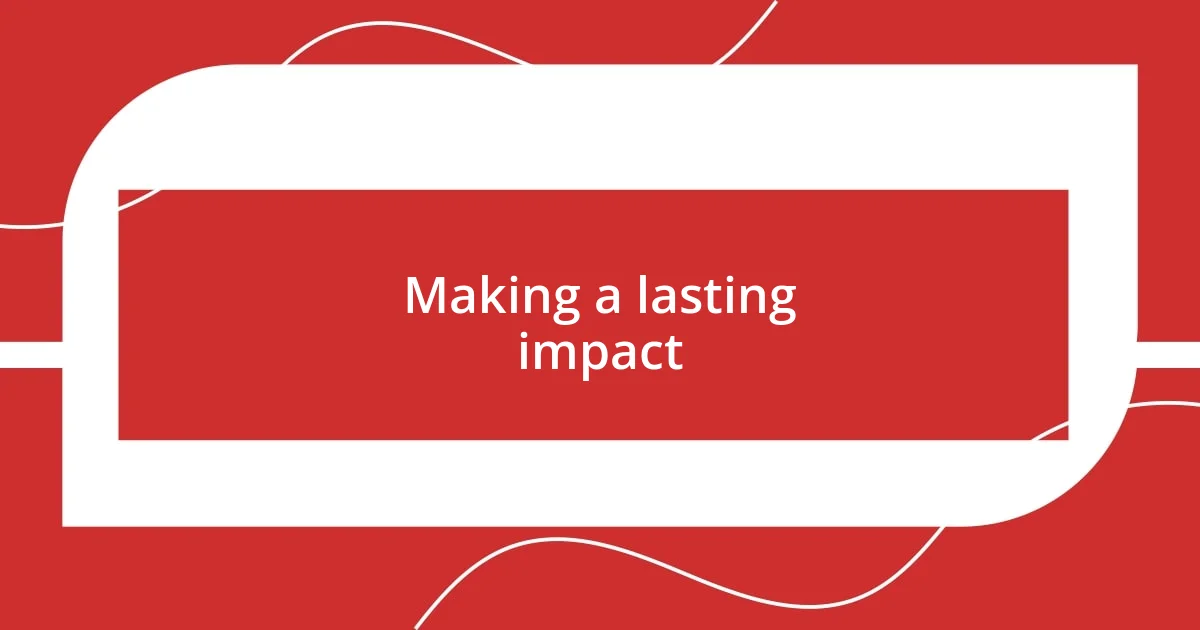
Making a lasting impact
Making a lasting impact at community fairs is about more than just showing up; it’s about leaving a footprint in the hearts of those we meet. I recall one sunny afternoon at a fair, when a shy teen approached me while I was volunteering at a craft booth. She hesitated at first, but after a few encouraging words, she eventually opened up about her passion for art. Helping her explore and create something together felt incredibly fulfilling. In that moment, I realized I wasn’t just a volunteer—I was a catalyst for her self-expression and confidence.
Every interaction holds potential, and often, it’s those small moments that create the most significant ripples. I remember a father who seemed overwhelmed while juggling his energetic kids. I offered to help by guiding the children to a nearby game, which allowed him a brief moment to breathe. When he returned, he thanked me, not just for the help but for the reminder that community support is always nearby. Moments like that reinforce how mutual assistance fosters a stronger, more connected community.
In my experience, the lasting impact extends well beyond the event itself. Once, I stumbled upon a family celebrating their child’s birthday at the fair. In conversation, they shared how they moved to the area seeking better opportunities. Months later, I spotted them at another event and they remembered me! They mentioned how my suggestions for local programs made a difference in their lives. Isn’t it incredible how a single interaction can resonate for so long? These experiences remind us that our efforts, no matter how small, can ripple through time and create lasting connections within our communities.
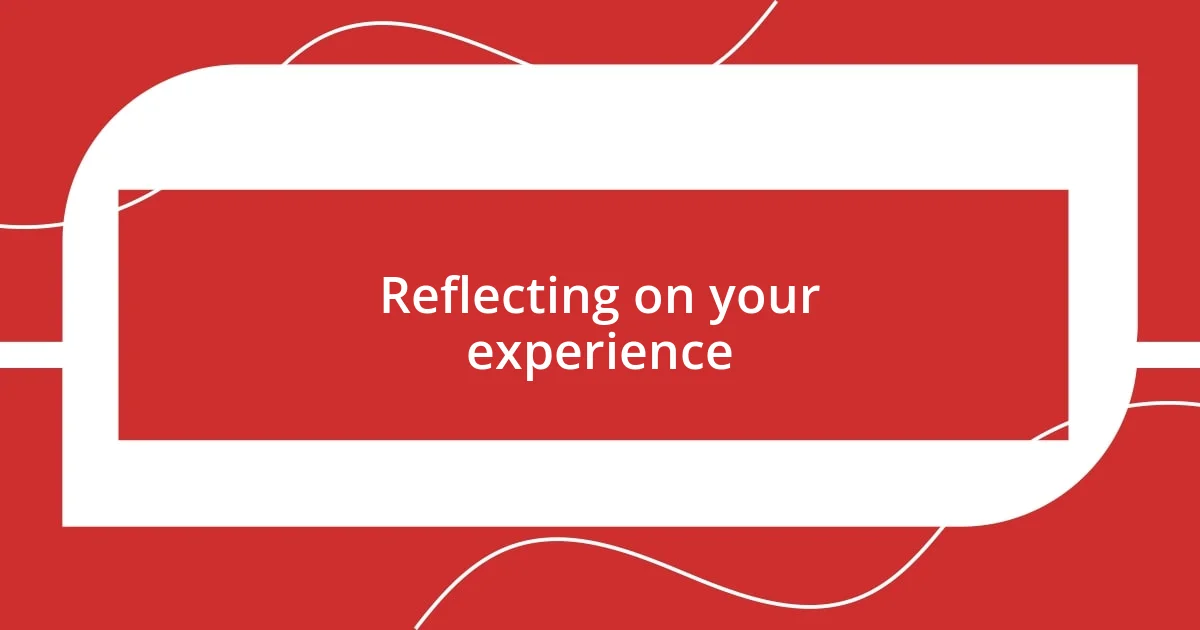
Reflecting on your experience
Reflecting on my experience as a volunteer, I often find myself going back to those fleeting moments that changed my perspective. I remember a day when an elderly gentleman approached my booth with a twinkle in his eye, asking about the activities. As we chatted, he shared stories from his past, reminding me of the power of connection. How often do we take the time to listen to others? In that exchange, I felt a warmth in my heart, realizing that volunteering wasn’t just about tasks but about creating meaningful connections.
I’ve also pondered how volunteering has shifted my understanding of community. At one fair, a middle-aged woman shared her struggles with loneliness, and I felt an instant urge to help her feel seen and heard. We discussed ways to get involved, and by the end of our conversation, she was smiling and bright-eyed, excited about joining our efforts. It struck me: How can we support those around us if we don’t take the time to truly listen? This moment was a reminder that sometimes, our role is to simply be there for someone, making all the difference in their day.
These reflections have shaped my view on the essence of volunteering. I’ve come to realize that every encounter, whether it’s a joyous laugh or a heartfelt conversation, enriches my own life as much as it does others’. Isn’t it enlightening to think that every person we meet has a story to tell? With each interaction, I grow closer to understanding my community’s diverse tapestry, and these insights inspire me to keep giving back, knowing that each experience unfolds new layers of connection and fulfillment.






